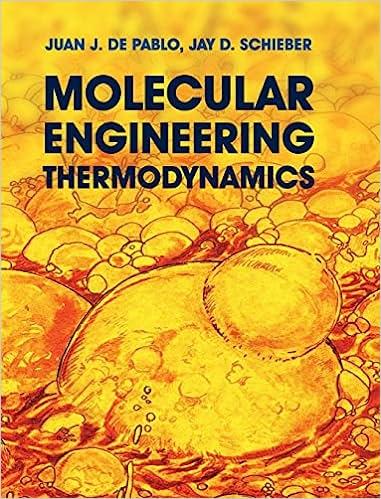Answered step by step
Verified Expert Solution
Question
1 Approved Answer
Please answer each of the following independent questions. a ) ( 1 0 marks ) Methanol is produced by partial oxidation of methane; but methanol
Please answer each of the following independent questions.
a marks Methanol is produced by partial oxidation of methane; but methanol can undergo further oxidation to produce and This series reaction can be represented by You're your goal is to maximize the yield of methanol B and limit production of What type of reactor or reactor combination would you choose to maximize the yield of methanol, with and where Would you prefer high or low conversion of methane A Explain and justify your answer calculations are not required
b marks Assuming that the selected reactor for the methanol synthesis process in a is a pseudohomogeneous PFR operating adiabatically, write the energy balance and mass balance equations that account for both reactions and all five components in the system.
c marks You have been asked to design a chemical reactor system for an autocatalytic reaction with There is no in the feed, although a onetime addition of at startup is possible. The liquid phase reaction takes place isothermally and isobarically. What would be your two best design options, if the primary objective is to minimize reactor volume and capital cost. PROVIDE DETAILED REASONING TO SUPPORT YOUR ANSWER.

Step by Step Solution
There are 3 Steps involved in it
Step: 1

Get Instant Access to Expert-Tailored Solutions
See step-by-step solutions with expert insights and AI powered tools for academic success
Step: 2

Step: 3

Ace Your Homework with AI
Get the answers you need in no time with our AI-driven, step-by-step assistance
Get Started


